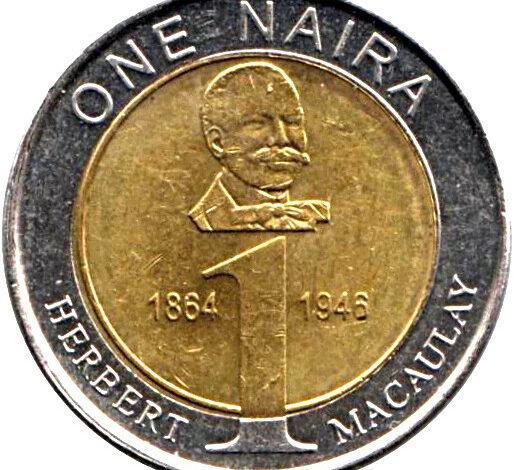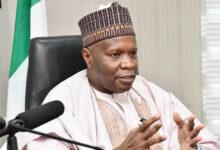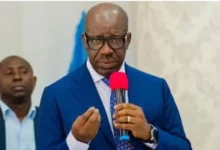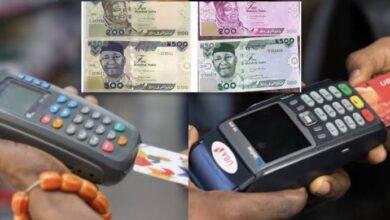
When did Nigeria stop using one naira
The Central Bank of Nigeria (CBN) is the sole issuer of legal tender money throughout the Federal Republic of Nigeria. It controls the volume of money supplied in the economy in order to ensure monetary and price stability. The Currency Operations Department of the CBN is in charge of currency management, through the designs, procurement, distribution and supply, processing, reissue and disposal or disintegration of bank notes and coins.
Read Also: Top 10 funny numbers to call when you are bored and stuck at home
👉 Relocate to Canada Today!
Live, Study and Work in Canada. No Payment is Required! Hurry Now click here to Apply >> Immigrate to CanadaA major cash crunch occurred in February 2023 when the Nigerian government used a currency note changeover delivering too few of the new notes into circulation to attempt to force citizens to use a newly-created government-sponsored central bank digital currency. This led to extensive street protests.
When did Nigeria stop using one naira
Nigeria stopped using the one naira currency in 2005. The reason behind this change was that the government wanted to simplify the currency system and make it easier for people to use. Before 2005, the country had several different denominations of currency, including the one naira, which made transactions confusing and difficult for both merchants and consumers.InformationGuideNigeria
So, the government decided to phase out the one naira and replace it with coins. This way, people could have smaller groups that were more convenient for everyday purchases, like buying snacks or paying for public transportation.
But this change wasn’t without its challenges. A lot of folks were used to using the one naira and didn’t like the idea of having to switch to coins. Plus, there were concerns about the coins being too small and easily lost, or that merchants wouldn’t have the change on hand to make transactions.
However, the government was determined to make the switch work, and they put a plan in place to make the transition as smooth as possible. They worked with banks and merchants to educate people about the new currency system and to make sure that everyone was prepared for the change.
And in the end, the switch to coins was a success! People got used to using the smaller denominations, and merchants were able to easily keep change on hand. Plus, it made transactions a lot faster and easier, which was a huge plus.When did Nigeria stop using one naira
So, all in all, while the switch from the one naira to coins was a bit of a hassle at first, it was ultimately the right move for Nigeria. It made the currency system more user-friendly and streamlined, which was a big win for everyone involved.
Read Also: Do Clubs Pay Footballers Salaries When They Are Injured And When Season Ends?
👉 Relocate to Canada Today!
Live, Study and Work in Canada. No Payment is Required! Hurry Now click here to Apply >> Immigrate to CanadaPurpose of phasing out the one naira note
The purpose of phasing out the one naira note in Nigeria was to reduce the cost of printing and distribution of low denomination notes, as well as to curb money laundering activities and inflation. The cost of printing and distributing low denomination notes was becoming a burden for the Central Bank of Nigeria, and phasing out the one naira note was seen as a way to reduce these costs.10 Importance of Judiciary in Nigeria
Additionally, the phasing out of small denomination notes was aimed at reducing the risk of money laundering activities and controlling inflation, as it would reduce the amount of cash in circulation and make it more difficult to use large amounts of cash for illegal activities. This move was part of a larger effort to modernize Nigeria’s currency system and move towards a more efficient economy.
Read Also: 10 The Importance of National Integration in Nigeria
Importance of the change for Nigeria’s future
The change of phasing out the one naira note in Nigeria was important for the country’s future because it marked a step towards modernizing Nigeria’s currency system and moving towards a more efficient economy. By reducing the cost of printing and distribution of low denomination notes, the Central Bank of Nigeria was able to save resources that could be better used for other purposes. Additionally, by reducing the amount of cash in circulation, the phasing out of the one naira note helped curb money laundering activities and control inflation, which is important for maintaining the stability of the country’s economy. By making these changes, Nigeria was able to take a step towards a more modern and efficient economy, which is essential for its future growth and development.
Difficulty adjusting to using coins instead of notes
The transition from the one naira note to the one naira coin was not without its challenges, as many Nigerians had difficulty adjusting to using coins instead of notes for small transactions. Coins are typically heavier and bulkier than notes, making them less convenient for carrying and using for small purchases. Additionally, coins can be easily lost or damaged, which can be an inconvenience for people who rely on them for everyday transactions.10 The Importance of National Integration in Nigeria
Read Also: 10 Importance of River Basins in Nigeria
Furthermore, there was a cultural and psychological shift that many people had to go through, as the use of coins instead of notes was a relatively new concept in Nigeria. This resulted in some confusion and frustration among the public, who were used to using notes for their daily transactions. Overall, the difficulty adjusting to using coins instead of notes was a major challenge during the transition from the one naira note to the one naira coin in Nigeria.
Read Also: 10 Importance Of Mining In Nigeria
Conclusion
In conclusion, Nigeria stopped using the one naira note in 2005 as part of a currency reform aimed at phasing out smaller denomination notes and coins. This move was aimed at reducing the cost of printing and distribution of low denomination notes, as well as curbing money laundering activities and inflation. The one naira note was replaced with the one naira coin, which is still in circulation today.105 Good Morning Love Messages
It’s worth mentioning that this change wasn’t without its bumps in the road, with many Nigerians having trouble adjusting to using coins instead of notes for small transactions. But, as the saying goes, time heals all wounds and now, using coins for small purchases is just a way of life in Nigeria. The one naira coin may not be worth much, but it’s still a valuable part of Nigeria’s currency system. All in all, the phasing out of the one naira note was a necessary step in Nigeria’s journey towards a more modern and efficient economy.
FAQs
When did Nigeria stop using the one naira note?
Answer: Nigeria stopped using the one naira note in 2005.NYSC Portal
Why did Nigeria stop using the one naira note?
Answer: Nigeria stopped using the one naira note as part of a currency reform aimed at reducing the cost of printing and distribution of low denomination notes, as well as curbing money laundering activities and inflation.200 Romantic Love Message
What replaced the one naira note in Nigeria?
Answer: The one naira note was replaced with the one naira coin.
Is the one naira coin still in circulation in Nigeria?
Answer: Yes, the one naira coin is still in circulation in Nigeria.
Was the transition from the one naira note to the one naira coin smooth?
Answer: The transition from the one naira note to the one naira coin was not without its challenges, with many Nigerians having trouble adjusting to using coins instead of notes for small transactions.JAMB Portal
Was phasing out the one naira note a good decision for Nigeria’s economy?
Answer: The phasing out of the one naira note was a necessary step in Nigeria’s journey towards a more modern and efficient economy.
Check JAMB Result
Check and Confirm: How much is Dollar to Naira







